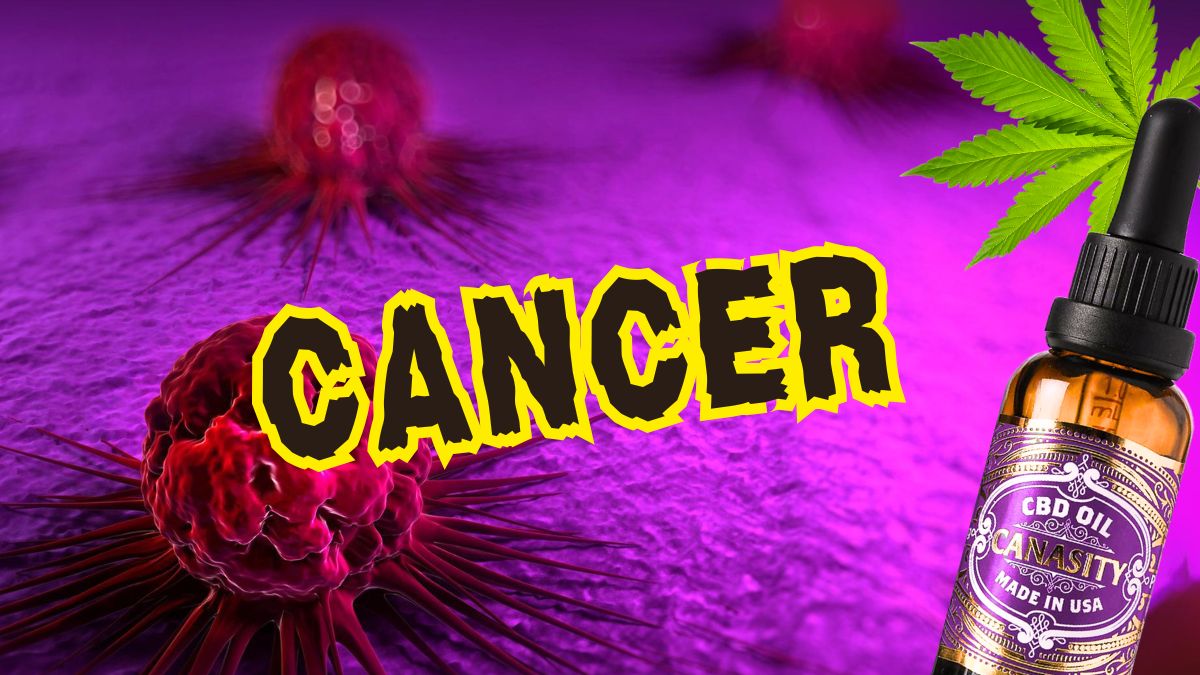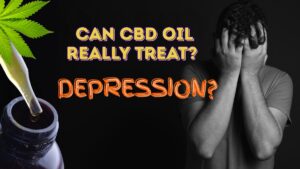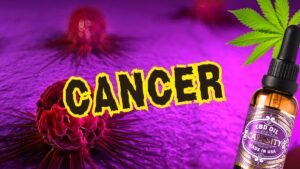Vital Warning: This article does not offer cancer treatment advice and does not constitute medical advice. Cancer is a serious illness that must be managed solely by oncology specialists. Before using CBD oil or any supplement, you must consult your oncologist. Never alter your current cancer treatment or add a complementary product without your doctor’s approval. The purpose of this article is not to “treat” cancer, but to examine the potential role of CBD in supportive careand symptom management in light of current scientific research.
A cancer diagnosis is a life-altering process, a physically and emotionally challenging journey for both patients and their loved ones. While conventional cancer treatments are life-saving, they can also bring debilitating side effects like pain, nausea, loss of appetite, and anxiety. On this difficult journey, patients seek cancer supportive care to improve their quality of life and make the treatment process more bearable. In recent years, one of the most notable compounds in this area has been cannabidiol, or CBD.
So, what does science say about the relationship between CBD and cancer? In this article, we will provide an evidence-based and realistic perspective on a wide spectrum of topics, from laboratory studies on cancer cells to the management of cancer treatment side effects. Our goal is to provide you with a reliable resource based on scientific data, without peddling false hope.
What Is Cancer and What Are Its Conventional Treatments?
Cancer is the general name for a group of diseases caused by the uncontrolled division and proliferation of cells in the body. Normally, cells grow, divide, and die according to the body’s needs. However, cancer cells disrupt this order, multiplying uncontrollably to form masses called “tumors.” These tumors can invade surrounding tissues or spread to other parts of the body through the bloodstream (metastasis).
Conventional cancer treatments are determined based on the type and stage of the cancer and the patient’s overall health. The main treatment methods include:
- Chemotherapy: Powerful drugs used to destroy cancer cells or stop their growth.
- Radiotherapy (Radiation Therapy): The use of high-energy rays to kill or shrink cancer cells.
- Immunotherapy: A treatment that strengthens the body’s own immune system to fight cancer.
- Targeted Therapies: Drugs that target specific molecules involved in the growth and spread of cancer cells.
While these treatments are highly effective, they can also harm healthy cells, leading to various side effects. This is where complementary medicine and supportive care come into play.
What Is CBD (Cannabidiol) and How Does It Work in the Body?
Cannabidiol, or What is CBD?, is one of hundreds of non-psychoactive (meaning it doesn’t cause a “high”) compounds found in the hemp plant. Unlike THC, it does not cause feelings of intoxication. This characteristic has made it a much-researched compound for its therapeutic potential.
CBD works by interacting with our body’s Endocannabinoid System (ECS). The ECS is a complex system responsible for balancing many essential processes, including pain, appetite, sleep, mood, and immune responses. Cancer and its treatments can disrupt this delicate balance. It is thought that CBD may help the ECS restore the body’s internal equilibrium by modulating it, thereby having a soothing effect on some cancer symptoms.
CBD and Cancer Research: What Are the Scientific Facts?
When examining cannabidiol cancer research, it is vital to distinguish between two important areas: laboratory studies on cancer cells and clinical trials in humans for symptom management.
Preclinical Studies: The Hope in the Laboratory
Preclinical research—that is, studies conducted in test tubes (in vitro) and on animal models (in vivo)—has shown that CBD may exhibit some interesting effects on cancer cells. In these studies, CBD has been observed to induce apoptosis (programmed cell death), slow cell proliferation, inhibit angiogenesis (the formation of new blood vessels that supply tumors), and reduce the ability of cancer cells to spread (metastasis). While these findings are exciting, it is crucial to emphasize that they were obtained in a laboratory setting and do not constitute proof that CBD treats cancer in humans.
Clinical Trials: The Role in Human Symptom Management
The focus of human clinical trials is entirely different: not treating the cancer itself, but the role of CBD in alleviating the challenging symptoms caused by cancer and its treatment. The evidence in this area is far more meaningful and hopeful for today’s patients. Scientific reviews suggest that cannabinoids may be particularly beneficial in managing symptoms like chemotherapy-induced nausea, vomiting, and chronic pain.
CBD and Chemotherapy Side Effects: Can It Really Improve Quality of Life?
CBD for chemotherapy side effects is one of the most researched areas. Its potential to improve a patient’s quality of life by mitigating the symptoms of conventional treatments may be its most valuable aspect.
Pain Management: A Glimmer of Hope for Cancer Patients?
Chronic pain is one of the most debilitating symptoms for advanced-stage cancer patients. CBD, thanks to its anti-inflammatory and analgesic properties, shows promise, especially for types of pain that do not respond well to opioids, such as neuropathic pain. Clinical trials suggest that CBD, when used in conjunction with traditional painkillers, may enhance their effectiveness and help reduce their dosages.
Using CBD for Nausea and Loss of Appetite
One of the most well-known side effects of chemotherapy is severe nausea and vomiting (CINV). It is thought that CBD may help alleviate these symptoms by affecting the nausea center in the brain. Furthermore, through its indirect effects on the ECS, which regulates appetite, it may play a supportive role in combating appetite loss.
Anxiety, Stress, and Sleep Problems
A cancer diagnosis and treatment process bring with them an intense period of anxiety, stress, and insomnia. CBD’s anxiolytic (anxiety-reducing) properties are well-documented. By calming the mind, regulating the release of stress hormones, and improving sleep quality, it can help patients feel more mentally resilient during this difficult process.
CBD Oil for Cancer Patients: Dosage, Safety, and Precautions
There is no clear answer to the question of how to use CBD oil for cancer. The correct CBD oil dosage for cancerpatients must be determined individually by an oncologist.
The Importance of Talking to Your Oncologist: What Questions to Ask?
The most critical step is to discuss this topic openly with your oncologist. Here are some important questions to ask your doctor:
- Does CBD oil interact with the chemotherapy or other medications I am taking?
- If I consider using it, do values like my liver enzymes need to be monitored?
- Could it have a potential benefit for my situation, or do the risks outweigh them?
- If I start, what dosage and method of use do you recommend?
CBD and Conventional Treatments: Interactions and Risks
One of the most critical issues is the potential interaction of CBD with conventional cancer treatments. CBD is metabolized by the cytochrome P450 enzyme system in the liver, which also processes many chemotherapy drugs. Therefore, you should NEVER use CBD while taking chemotherapy or any other cancer medication without the approval of your oncologist.
A Guide to Choosing High-Quality CBD Products
For cancer patients with weakened immune systems, the purity and safety of any product used are paramount.
- Third-Party Lab Testing: Check the product’s Certificate of Analysis (CoA) to verify its purity and confirm it is free of pesticides or heavy metals.
- Organic Hemp: Ensure the product is derived from organic hemp plants to minimize the risk of toxins.
- CO₂ Extraction: This method is the cleanest and safest production technique, leaving no solvent residue.
- THC Content: To avoid triggering anxiety or other unwanted effects, THC-free CBD oil for cancer products should be preferred.
Products that are organic and tested, offered by brands like Canasity that prioritize transparency and quality, can be the most reliable option during this sensitive process.
Conclusion: A Realistic Perspective on the Cancer Journey
There is no scientific evidence that CBD oil cures cancer, and such claims are extremely dangerous. CBD is not a “cure”; it is a potential “supportive supplement.”
Current scientific data shows that the true value of CBD lies in helping to manage the challenging side effects of cancer treatment (pain, nausea, loss of appetite, anxiety) and improving patients’ quality of life. Even these potential benefits must only be considered with the close supervision and approval of the patient’s oncologist. The fight against cancer is a serious process that must be conducted under the guidance of evidence-based medicine and expert oncologists.
For more information, visit our FAQ page: https://canasity.com/faq/
Frequently Asked Questions (FAQ)
Are products with THC better for cancer? While some research suggests THC may also be effective for nausea and pain, it also has significant psychoactive side effects. In a sensitive condition like cancer, products with 0% THC are generally a safer starting point.Ask ChatGPT
Does CBD oil cure cancer? No. There is currently no scientific evidence that CBD cures or treats cancer in humans. Claims to the contrary are false and dangerous.
Can I use CBD oil while undergoing chemotherapy? You must never use it without consulting your oncologist. CBD can affect the efficacy and safety of chemotherapy drugs. It should only be used with your doctor’s approval and supervision.
What types of cancer is CBD beneficial for? Scientific research has not shown that CBD treats any specific type of cancer. Its benefits are focused on managing symptoms like pain and nausea, rather than the type of cancer.
Does CBD shrink tumors? Although some promising results have been seen in laboratory and animal studies, these findings have not been proven in humans. Therefore, it cannot be said that it shrinks tumors in humans.
Is there a recommended CBD dose for cancer patients? No, there is no standard dose. A possible dosage must be determined individually based on the patient’s condition, other medications they are taking, and a doctor’s evaluation.
Does CBD help with anxiety and insomnia in cancer patients? Yes, one of the best-known potential benefits of CBD is for anxiety and sleep quality. It can be supportive in managing the stress that comes with a cancer diagnosis and treatment.
Are CBD oil and hemp seed oil the same thing? No. CBD oil is extracted from the flowers of the hemp plant, which are rich in cannabinoids. Hemp seed oil is pressed from the seeds, contains no CBD, and has nutritional properties.
Does CBD have an effect on the immune system? It is thought that CBD can modulate the immune system. Therefore, it is critical for patients undergoing immunotherapy, in particular, to consult their doctor before using CBD.
Scientific Evidence and Sources Cited in the Article:
- Dariš, B., et al. (2019). Cannabinoids in cancer treatment: Therapeutic potential and legislation. Bosnian journal of basic medical sciences.
- Seltzer, E. S., et al. (2020). Cannabidiol (CBD) as a Promising Anti-Cancer Drug. Cancers.
- Moltke, J., & Hindocha, C. (2021). Reasons for cannabidiol use: a cross-sectional study of CBD users… Journal of cannabis research.
- Abrams, D. I. (2018). The therapeutic effects of Cannabis and cannabinoids… European journal of internal medicine.
- Grimison, P., et al. (2020). Oral THC:CBD cannabis extract for refractory chemotherapy-induced nausea and vomiting… Annals of Oncology.
- Johnson, J. R., et al. (2010). …study of the efficacy, safety, and tolerability of THC:CBD extract…in patients with intractable cancer-related pain. Journal of pain and symptom management.
- Brown, J. D., & Winterstein, A. G. (2019). Potential Adverse Drug Events and Drug–Drug Interactions with Medical and Consumer Cannabidiol (CBD) Use. Journal of Clinical Medicine.
Last Updated: July 24, 2025
Author: The Canasity Science Team (Reviewed by experts with 7 years of experience in cannabinoid research.)




















